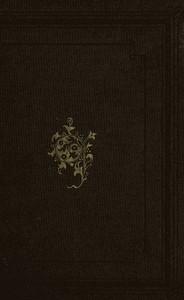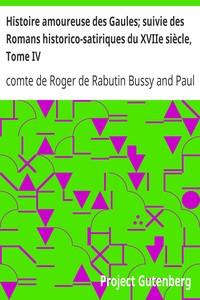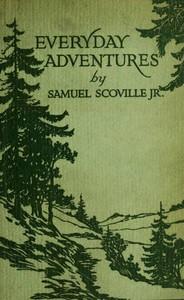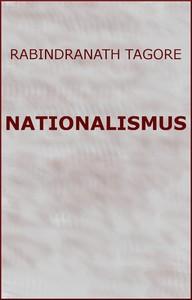Read this ebook for free! No credit card needed, absolutely nothing to pay.
Words: 71294 in 23 pages
This is an ebook sharing website. You can read the uploaded ebooks for free here. No credit cards needed, nothing to pay. If you want to own a digital copy of the ebook, or want to read offline with your favorite ebook-reader, then you can choose to buy and download the ebook.


: On Some Ancient Battle-Fields in Lancashire And Their Historical Legendary and Aesthetic Associations. by Hardwick Charles - Great Britain History Anglo-Saxon period 449-1066; Battles England; Lancashire (England) History
Anglo-Saxon and Scandinavian invasions of Britain. First arrival of the Danes, A.D. 787. The Anglo-Saxons and Ancient British inhabitants Christians, the Scandinavians Pagans. Savage warfare of the period. Progress of the invasion. Ella, king of Northumbria and Ragnar Lodbrog. The real and mythic Ragnar. Halfden's settlements in Northumbria. Athelstan succeeds to the throne of Wessex and its dependencies. Submission of the Welsh and Scots. Marriage of Editha, Athelstan's sister, to Sihtric, king of Northumbria. Sihtric's relapse into paganism and repudiation of his queen. Sudden death of Sihtric. Athelstan's vengeance falls upon his sons by a former wife, Anlaf and Godefrid, the former of whom fled to Ireland, and the latter sought refuge with Constantine, king of the Scots. Athelstan dominant king of all Britain. Revolt of the Scottish king and his defeat. Powerful combination of Athelstan's enemies. Their defeat and rout at Brunanburh. Difficulty as to the exact date of the battle. British Christian chiefs, as on previous occasions, espoused the cause of the pagan invaders, and fought against their hated rivals of the party of St. Augustine. Defeat of Athelstan's two governors, Gudrekir and Alfgeirr. Athelstan's arrival at Brunanburh. Anlaf's stratagem in the guise of a harper. Similar story related of King Alfred. Improbability of both being historically true. Mr. T. Metcalfe's doubts on the subject. Anlaf's midnight assault of Athelstan's camp frustrated. Details of the great battle. Total rout of Anlaf and his allies. Five "youthful kings" and seven of Anlaf's earls slain. Flight of Anlaf to Dublin. Importance of the victory. The famous Anglo-Saxon poem. Claims to the title of first king of England discussed. The causes of the site of the battle being at the present day merely conjectural. The influence of the battle after Danish and Norman-French conquests. Suppression of evidence. Henry of Huntingdon's views on the subject. Mr. D. Haigh on the destruction of ancient Runic inscriptions by the disciples of Augustine and other Christian missionaries. Archbishop Parker's labours in the saving of Anglo-Saxon MSS. from destruction in the sixteenth century. John Bale's account in 1549 of the wholesale destruction of MSS. during his day. Thorpe, Dr. Grundtvig, and J. M. Kemble's testimony to the ignorance of the Anglo-Norman copyists. The great "Cuerdale find" in May, 1840. Mr. Hawkins's description of the treasure. Its great value at the time of its deposit. The latest coins minted a short time previously to the great battle of Brunanburh. Dr. Worsaae's analysis of the "hoard." Various places suggested as the probable site of the battle: Colecroft, near Axminster, Devonshire; near Beverley, and at Aldborough, Yorkshire; Ford, near Bromeridge, Northumberland; Banbury, Oxfordshire; Bourne, Brumby, and the neighbourhood of Barton-on-Humber, Lincolnshire. A Bambro', a Bambury, and some other places have likewise found advocates. Their respective claims discussed. The present writer's position that the Cuerdale hoard was buried owing to the disastrous defeat of the allies under Anlaf near the "pass of the Ribble." The tradition respecting its burial and non-disinterment. The three fords at the "pass," at Cuerdale, Walton, and Penwortham, opposite Preston. Evidence of the coins. Discovery of Roman remains at Walton, in 1855. Revival of the tradition. The hoard at Cuerdale all silver. Finds of Roman hoards not uncommon in the county. Other battles known to have been fought in the neighbourhood. Two great Roman roads, and some vicinal ways pass near the locality. From the positions of the belligerents, the "pass of the Ribble" a very probable site of the conflict. The certainty of its having taken place in the Anglo-Saxon kingdom of Northumbria. Anlaf, the Dane, ruling chief of Dublin, head of the Confederacy. The ports of Ribble and Wyre suitable for the landing of his vessels, and for his after escape to Dublin. From a topographical and military point of view, "the pass of the Ribble" a very probable site of the conflict. The name Brunanburh, in some presumedly corrupted form, very common. Examples. Name of place of conflict variously written by the older historians. Doomsday book defective in South Lancashire, in consequence of its ravaged condition; still many corrupted names remain to furnish important etymological evidence in favour of the author's position. These evidences and readings in old maps and deeds discussed in detail. Origin of the names Brindle ; Bamber , Brownedge . Mr. Weddle's view that Weondune is a mistake for Weordune. Origin of the names Wearden and Cuerden. Etymological and philological evidence considered. Probable modern remains of Ethrunnanwerch in Etherington and Rothelsworth. Other names of places in Lancashire which require consideration. Proofs that the battle was fought not far from the sea shore and not in the interior of the country. Other evidence of Athelstan's connection with the district. His grant of Amounderness to the Cathedral church at York, A.D. 930. The Harleian MSS. "Mundana Mutabilia," of the early part of the seventeenth century. Tumulus named "Pickering Castle," near Roman vicinal way. Etymological origin of the word "Pickering" discussed. "Pickering Castle," a probable corruption of "Bickering Castle," or the castle or tumulus of the battle-field. Ancient stone coffin in Brindle church-yard. Discovery of Ancient British burial urns at "Low Hill," near Over Darwen, in 1867. Ancient traditions respecting a battle in the neighbourhood of Tockholes in Roddlesworth valley. Concluding remarks in support of the view that the country south of the "Pass of the Ribble" is the most probable site of Athelstan's great victory. More recent battles in the neighbourhood. Bruce's foray in 1323, Cromwell's victory in 1648, and Milton's sonnet thereon. The number of troops engaged. Legends connected with the battle. The Siege of Preston under Wells and Carpenter in 1715. March of the "Young Pretender," in 1745. Doggrel ballad: "Long Preston Peggy to Proud Preston went."
The disposal of St. Oswald's remains. The dun bull, the badge of the Nevilles. The Genesis of Myths. Anglo-Saxon Helmet.
ERRATA.
Transpose the note commencing on page 64 to page 65.
EARLY HISTORICAL AND LEGENDARY BATTLES.
THE ARTHUR OF HISTORY, LEGEND, AND ART. KING ARTHUR'S PRESUMED VICTORIES ON THE DOUGLAS, NEAR WIGAN AND BLACKROD.
It has often been remarked, and with some truth, that our standard historical works, until very recent times at least, contained little more than the details of battles, the squabbles and intrigues of diplomatists and politicians, and the pedigrees of potentates, imperial or otherwise. Now-a-days we seek to know more of the domestic habits and conditions of the mass of the population, and the degree and kind of intellectual and moral culture which obtained amongst a people at any given period of their history. But man's advance from the savage to his present relatively civilized condition has been one of fierce and sanguinary strife, and the piratical and freebooting instincts which he inherited, along with some of his nobler attributes and aspirations, from his remote ancestors, are by no means extinguished at the present time, although, in their practical exhibition, they may generally assume a somewhat more decorous exterior. Still, courage and physical endurance, however rude and uncouth in outward aspect, as well as heroism of a higher mental or moral order, ever possessed, and ever will possess, a strange and uncontrollable fascination; and the associations, social, political, or religious, attendant upon the more prominent of the bloody struggles of the past, excite, in a most powerful degree, the emotional as well as the imaginative elements of our being. This is notoriously the case when any special interest is superinduced, national or provincial. "All men naturally feel more interested in the historical associations of their own race than they do in those of any other portion of mankind. The soil daily trodden by the foot of any reflecting being,--the locality with whose present struggles, progress or decay, he is practically acquainted,--whose traditions and folk-lore were first fixed in his memory and his heart, long before more exact knowledge or cultivated judgment enabled him to test their accuracy or correctly weigh their value,--must possess historic reminiscences not only capable of commanding his attention, by exciting in the imaginative faculty agreeable and healthy sensations, but of teaching him valuable lessons in profound practical wisdom."
Indeed, Mr. Haigh expressly says--"There was another Arthur, a son of Mouric, king of Glamorgan, mentioned in the register of Llandaff." In his "History of the Conquest of Britain by the Saxons," by altering the time of the "coming of the Angles" to A.D. 428, "in accordance with a date supplied by the earliest authority," and of the accession of Arthur to A.D. 467, "in accordance with a date given by other authorities," he contends that "all anachronisms--involved in the system which is based upon the dates in the Saxon Chronicle and the Annals of Cambria,--have disappeared one after another; every successive event has fallen into its proper place; the Saxon Chronicle and the Brut have been proved accordant; and the result is a perfectly connected and consistent history, such as has never yet been expected, vindicating the truth of our early historians, and showing that authentic materials formed the substance of their Chronicles." In another place he contends that, by adapting his chronology, "a foundation of historic truth" is discovered "in stories which have hitherto been looked upon as mere romances."
Welsh traditions and writers ignore the Glastonbury legend, and regard, in some way or other, Arthur as a being exempt from ordinary mortality. The Rev. R. W. Morgan, in his "Cambrian History," says,--"His farewell words to his knights--'I go hence in God's time, and in God's time I shall return,' created an invincible belief that God had removed him, like Enoch and Elijah, to Paradise without passing through the gate of death; and that he would at a certain period return, re-ascend the British throne, and subdue the whole world to Christ. The effects of this persuasion were as extraordinary as the persuasion itself, sustaining his countrymen under all reverses, and ultimately enabling them to realise its spirit by placing their own line of the Tudors on the throne. As late as A.D. 1492, it pervaded both England and Wales. 'Of the death of Arthur, men yet have doubt,' writes Wynkyn de Worde, in his chronicle, 'and shall have for evermore, for as men say none wot whether he be alive or dead.' The aphanismus or disappearance of Arthur is a cardinal event in British history. The pretended discovery of his body and that of his queen Ginevra, at Glastonbury, was justly ridiculed by the Kymri as a Norman invention. Arthur has left his name to above six hundred localities in Britain."
Mr. Haigh, whilst maintaining the substantial historical veracity of Arthur's invasion of France, nevertheless adds: "When we consider how miserably the history of the Britons has been corrupted, in the several editions through which it has passed, we cannot expect otherwise than that the Brut should have suffered through the blunders of scribes, and the occasional introduction of marginal notes, and even of extraneous matter into the text, in the course of six centuries. Such an interpolation, I believe, is the story of an adventure with a giant, with which Arthur is said to have occupied his leisure, whilst waiting for his allies at Barbefleur; and I think the reference to another giant-story , with which it concludes, marks it as such. But I am convinced that the story of the Gallic campaign is a part of the original Brut, and is substantially true."
Henry of Huntingdon, who wrote in the earlier portion of the twelfth century, regarded Arthur as a genuine historical character, and attributed the then ignorance of precise localities of the twelve battles described by Nennius to "the Providence of God having so ordered it that popular applause and flattery, and transitory glory, might be of no account."
William of Malmsbury, in the twelfth century, although evidently aware of the legendary character of the mass of the Arthurian stories, seems, however, to have had some confidence that a substratum of historic truth underlying or permeating the mass, might, with skill and diligence, eventually be extracted. Probably a few years before Geoffrey's work appeared, he writes--"That Arthur, about whom the idle tales of the Bretons craze to this day, one worthy not to have misleading fables dreamed about him, but to be celebrated in true history, since he sustained for a long time his tottering country, and sharpened for war the broken spirit of his people."
Free books android app tbrJar TBR JAR Read Free books online gutenberg
More posts by @FreeBooks

: Motor Boat Boys on the Great Lakes; or Exploring the Mystic Isle of Mackinac by Arundel Louis - Motorboats Juvenile fiction; Great Lakes Region (North America) Juvenile fiction


: Histoire amoureuse des Gaules; suivie des Romans historico-satiriques du XVIIe siècle Tome IV by Bussy Roger De Rabutin Comte De Livet Charles Louis Contributor Boiteau D Ambly Paul Editor - France Court and courtiers; Erotic literature FR Séduction et l






